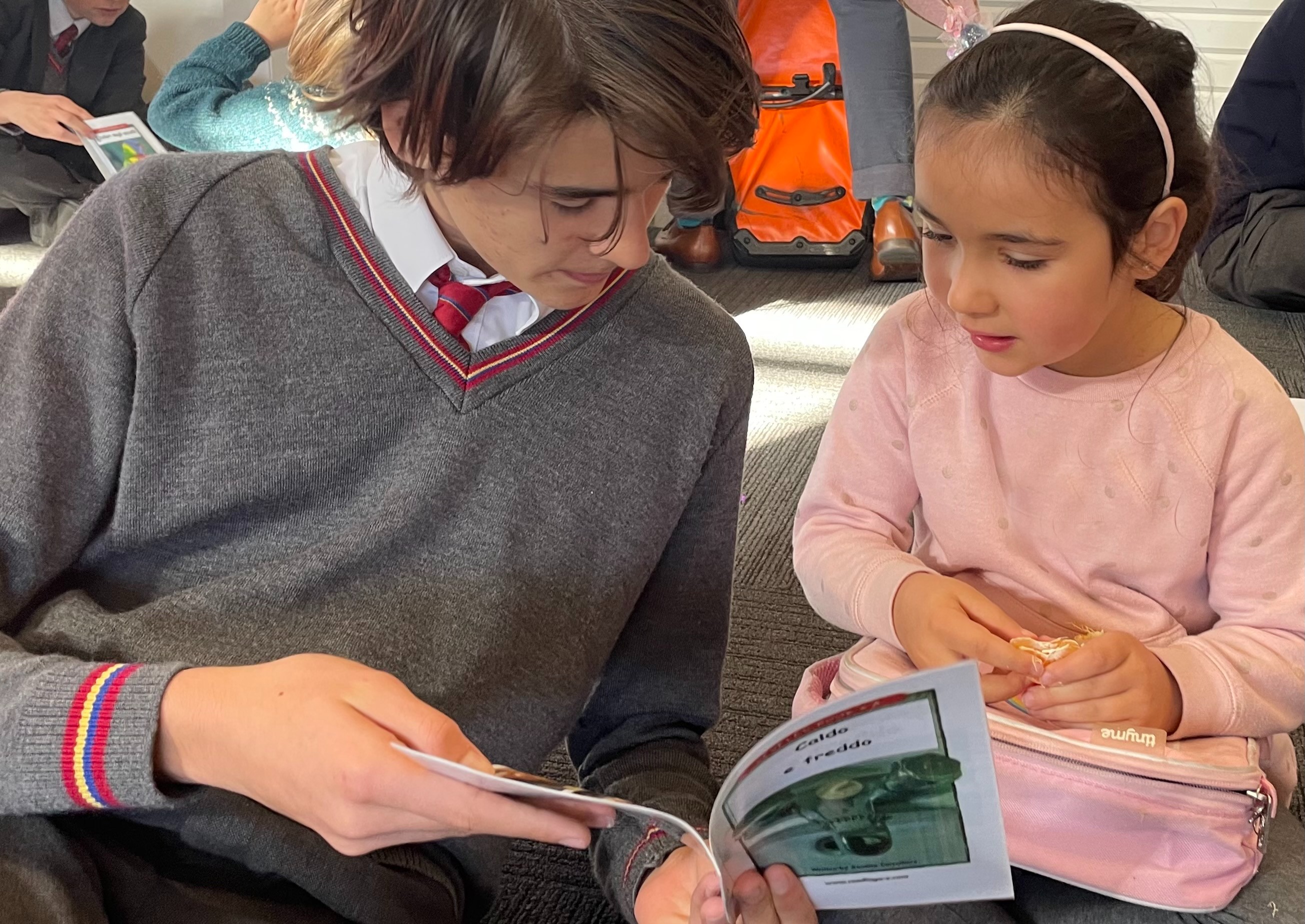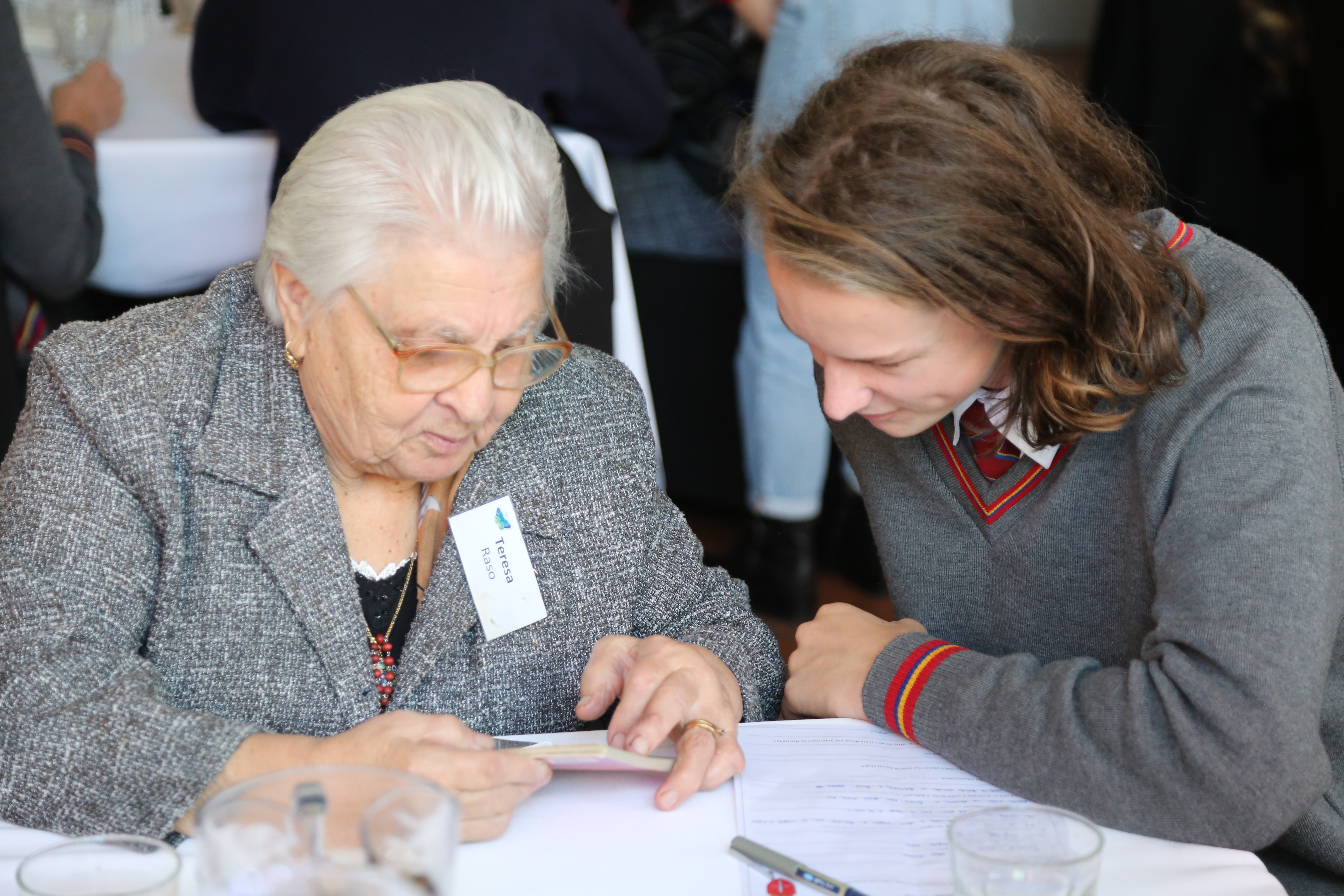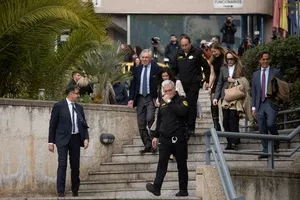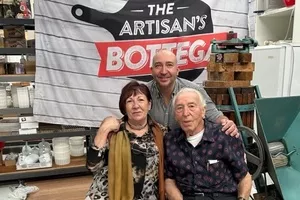The day-long excursion was organised by Italian teacher, Michela Pellizon, in collaboration with fellow Italian teacher and the school’s head of languages, Kristy Irwin.
The experience allowed students at the elite boys’ school in Hawthorn to meet with various members of the community, from the first generations of migrants who have contributed to Melbourne’s multicultural identity to young students who speak Italian every day at school as part of BSPS’s bilingual program.
The day began at BSPS, where Scotch students were greeted by the school’s principal, Trevor Strolla, vice principal, Marg Weymouth, and Foundation teachers Nancy Cozzo, Ivana D’Aprano and Sarah Pavlidis.
They then met with the school’s Foundation students, who welcomed them with an Acknowledgement of Land and a song in Italian.
The Scotch students had a chance to ask their pint-sized counterparts and their teachers about BSPS’s unique program; in 2017, BSPS became the first Italian bilingual school in Victoria, and the first Victorian school in 20 years to realise a new bilingual program.
Under the school’s program, 50 per cent of the curriculum is taught in Italian, from literacy to geometry and science – amounting to 150 minutes of Italian a week.
After sharing their own experiences with the Italian language and culture, the Scotch students then gifted BSPS with booklets in Italian that they had written and sourced images for as part of their classwork.
One student had written about how to make the perfect gelato, while another had created a bright booklet on colours in Italian.
Students from Scotch College and BSPS were divided into groups, and read the various booklets together.
The activity was a heart-warming display of language learning coming to life at all ages.

Year 10 Scotch College student, Ollo, reads one of the booklets to a Foundation student at BSPS
“The idea of an excursion to a primary school baffled me,” Year 10 student, Julien Le Brun, said.
“But when I arrived, I learnt how the hard work of writing a children’s book in Italian can pay off.”
Following the reading session, the Scotch students farewelled their new friends and boarded the bus for their next destination: the Trieste Social Club.
The students were greeted by the club’s secretary, Joe Cerritelli, who spoke about the migration of Italians from Trieste to Melbourne and the subsequent foundation of the club in 1969.
Cerritelli then explained that the students would be meeting a group of senior citizens who had all migrated from Italy to Australia and who come to the club for social events organised by CO.AS.IT. in Melbourne.
“These are a group of people who left their home with nothing and came here not speaking a word of English,” Cerritelli said.
“Mine this rich resource of knowledge and history to practise your Italian skills... and have fun!”
The Scotch students then entered the club’s dining room, sitting at tables with the senior citizens to learn about their migration stories and how they built a new life in Australia.
The students also played games with the senior citizens, and discovered creative ways of breaking the language barrier as many of them spoke very little English.
The atmosphere was jovial and the room resounded with laughter and a fusion of languages as the two generations got to know each other.
Some of the senior citizens had brought with them photos of their younger selves and their loved ones, both in Italy and Australia, breathing life into the various stories they told.
The students looked on and listened intently, fascinated by what their wiser counterparts had seen and experienced in their lifetimes.
Year 10 Scotch College student, James, looks at photos of Teresa and her family at the Trieste Social Club
“The experience really brought to life the Italian language for me,” another Year 10 student said.
“Seeing such optimistic, gentle, elderly Italian minds, with stories to entertain a young, distant Italian, like me, for hours.
“Listening to the voices of the many women and gentlemen, I was able to grasp an understanding of what different languages mean and their effect on interactions between people; how simply the way you speak can have an effect on the way you live the rest of your life.
“Many of these migrants have spent their lives trying to find where they fit in relevant to the way they speak, which is why they find themselves as part of the CO.AS.IT. Social Support Group at the Trieste Social Club.
“[It’s] a welcoming establishment in which members are able to meet with fellow Italians and break bread over some of the most incredible experiences, which only the green, white and red flag can provide.”
Following their visit to the Trieste Social Club, the Scotch students enjoyed lunch at Italian Artisans in Albert Park, devouring plates of authentic pizza prepared by owner-chef, Tony Nicolini.
Nicolini’s father Vitaliano migrated to Australia from Abruzzo in 1956.
In 1969, he took a huge risk and established the first Italian pizzeria on the Gold Coast.
Fast-forward five decades and Nicolini is one of Melbourne’s most prominent restaurateurs, carrying on his father’s legacy and acting as a shining example of the contributions that Italian migrants have made to Australian society.
After several rounds of pizzas fresh from the wood-fire oven, the Scotch students were treated to dessert: calzoni oozing with melted white chocolate.
It was a sweet ending to an intergenerational adventure around Melbourne, as the students of Scotch College discovered the ways in which the Italian community has influenced our city, and continues to do so to this day.





























